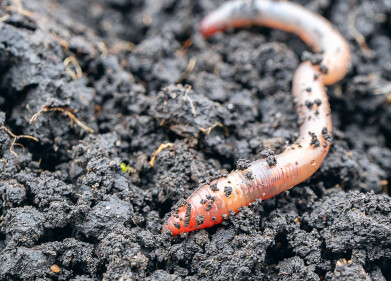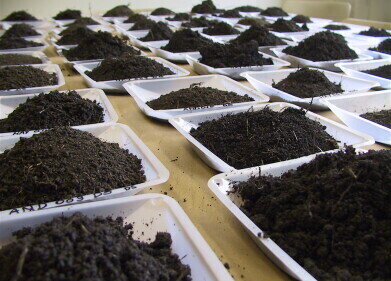Soil Testing
Why autumn leaves are vital for soil nutrition
Dec 15 2023
As the season turns and trees shed their vibrant foliage, a carpet of autumn leaves blankets the ground. Often viewed as a nuisance to be raked and removed, these fallen leaves are, in fact, unsung heroes in the cycle of soil nutrition and ecosystem health.
Autumn leaves are a significant source of essential nutrients like carbon, nitrogen, phosphorous, and potassium. As these leaves decompose, facilitated by microbes and earthworms, they release these nutrients back into the soil. This process not only enriches the soil but also improves its fertility, supporting robust plant growth in the upcoming seasons. Additionally, leaves contain a variety of other minerals essential for garden health, making them a natural, holistic fertilizer .
Leaving leaves on the ground during fall is an eco-friendly practice. It significantly reduces greenhouse gas emissions compared to the conventional method of disposal in landfills. As they decompose, leaves form a natural mulch, suppressing weeds and naturally fertilizing the soil. This approach aids in creating a sustainable garden ecosystem, diminishing the need for chemical fertilizers and weed control .
Autumn leaves serve multiple roles in landscapes: they act as natural mulches, improve soil structure, and are vital for composting. They enhance the soil's ability to retain moisture and provide a habitat for beneficial microorganisms. By fostering a rich soil ecosystem, these leaves contribute to the overall health of our gardens and landscapes .
Trees function as mineral-gathering entities, drawing nutrients like calcium, phosphorus, magnesium, and potassium from deep within the soil. These nutrients are then transferred to the leaves. When leaves fall, they carry these minerals to the soil surface, setting the stage for a nutrient replenishment cycle crucial for maintaining soil fertility and health .
The natural cycle of leaves falling and decomposing is a vital component of a sustainable and environmentally friendly approach to gardening and landscape management. Understanding and promoting the benefits of this natural process is essential, not just for our gardens but for the broader ecosystem. So, this autumn, let's reconsider the urge to rake and bag these fallen leaves. Instead, let's appreciate them as the unsung heroes they truly are in the realm of soil nutrition and environmental sustainability.
Digital Edition
AET 28.2 April/May 2024
May 2024
Business News - Teledyne Marine expands with the acquisition of Valeport - Signal partners with gas analysis experts in Korea Air Monitoring - Continuous Fine Particulate Emission Monitor...
View all digital editions
Events
Jul 30 2024 Jakarta, Indonesia
China Energy Summit & Exhibition
Jul 31 2024 Beijing, China
2024 Beijing International Coal & Mining Exhibition
Aug 07 2024 Beijing, China
IWA World Water Congress & Exhibition
Aug 11 2024 Toronto, Canada
Aug 25 2024 Stockholm, Sweden and online










.jpg)








